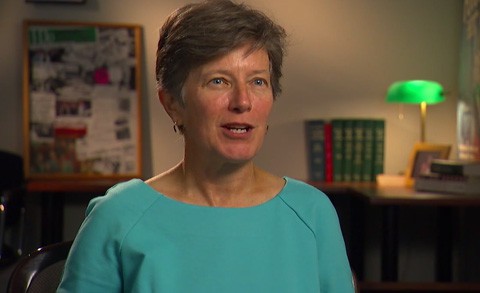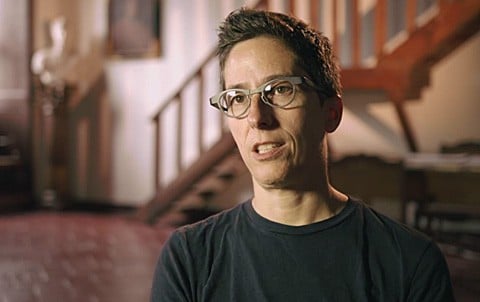Mary Bonauto, the Civil Rights Project Director at Gay & Lesbian Advocates & Defenders (GLAD) since 1990 and a civil rights lawyer who has been battling for equality for LGBT people for decades and scored one of the first victories against DOMA, has been awarded a $625,000 'Genius Grant' from the Macarthur Foundation, offered annually and paid in quarterly installments to a select group of artists, scholars, and professionals. See the Class of 2014 here.
According to the Foundation:
Recipients may be writers, scientists, artists, social scientists, humanists, teachers, entrepreneurs, or those in other fields, with or without institutional affiliations. They may use their fellowship to advance their expertise, engage in bold new work, or, if they wish, to change fields or alter the direction of their careers.
 Bonauto could not be more deserving. From Macarthur's announcement:
Bonauto could not be more deserving. From Macarthur's announcement:
Bonauto and Vermont colleagues formed a critical partnership in 1997, which is widely acknowledged as a pivotal time and place to challenge a state's exclusion of gay and lesbian couples from marriage. The Vermont Supreme Court's ruling in Baker v. Vermont (1999) was the first to hold that same-sex couples must be provided all of the same protections and obligations provided to married couples, and the state legislature established the first civil union law in the nation in 2000 to comply with that ruling. GLAD's subsequent filing of Goodridge v. Department of Public Health in Massachusetts, relying again on state constitutional guarantees of equality and liberty, resulted in the 2003 landmark decision that made that state the first to extend marriage equality to same-sex couples. Bonauto's constitutional arguments in Goodridge articulated the breadth of the practical and social harms imposed by the state's exclusion on real families and their children. In defending the marriage ruling from attempts to substitute civil unions, she drew on painful lessons from our nation's past, most notably the history of unjust “separate but equal” doctrines as substitutes for racial and gender equality, and the Massachusetts high court was the first to reject civil unions as a substitute for marriage. The Goodridge ruling, the transformative effect of same-sex couples marrying on the public's views, and subsequent legal (in Connecticut), legislative (in Vermont, Maine, and New Hampshire), and ballot-based (in Maine) victories all provided a solid foundation and roadmap for future strategies across the nation, including at the federal level.
In 2009, Bonauto led a team from GLAD and private law firms in the first strategic challenge to section three of the federal Defense of Marriage Act (DOMA) and argued that the federal government's non-recognition of the lawful and rapidly growing number of marriages unconstitutionally denied same-sex couples more than 1,000 federal protections and obligations usually available to married persons. Her case—Gill v. Office of Personnel Management—provided the first federal court wins in challenges to DOMA (in 2010 and 2012 rulings), and served as an important model for United States v. Windsor, the landmark case that ultimately resulted in the U.S. Supreme Court striking down DOMA in 2013 and on which she served as a strategist and external coordinator of friend-of-the-court briefs. In the name of equal treatment and dignity for all people, and in concert with other litigators and advocates across the country, Bonauto is breaking down legal barriers based on sexual orientation and influencing debates about the relationship between the law and momentous social change more broadly.
Most recently Bonauto joined the fight against Utah's same-sex marriage ban.
Check out the MacArthur video on Bonauto, AFTER THE JUMP…
Also winning the grant, out cartoonist Alison Bechdel.
Again, from Macarthur:
Bechdel's command of sequential narrative and her aesthetic as a visual artist was established in her long-running comic strip, Dykes to Watch Out For (1983–2008), which realistically captured the lives of women in the lesbian community as they influenced and were influenced by the important cultural and political events of the day.
Garnering a devoted and diverse following, this pioneering work was a precursor to her book-length graphic memoirs. Fun Home: A Family Tragicomic (2006) is a nuanced depiction of a childhood spent in an artistic family in a small Pennsylvania town and of her relationship with her father, a high school English teacher and funeral home director. An impeccable observer and record keeper, Bechdel incorporates drawings of archival materials, such as diaries, letters, photographs, and news clippings, as well as a variety of literary references in deep reflections into her own past.
Check out the Macarthur videos on these wonderful women, AFTER THE JUMP…







